'...and showcased in their original beauty.'
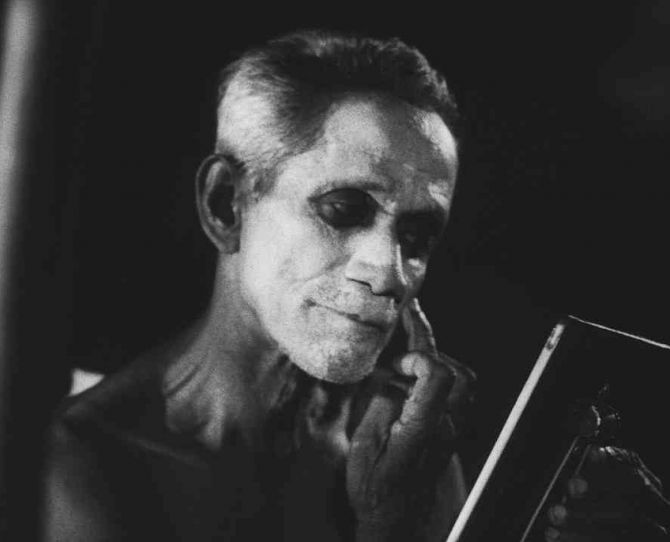
Shivendra Singh Dungarpur promotes the cause of film restoration in India.
He founded the Film Heritage Foundation in 2014 and has been in the forefront of taking restored Indian classics to festivals around the world.
"The curation of these 14 films presented an excellent opportunity to demonstrate that there is a whole world beyond Ray in Indian cinema," Dungarpur, who curated 14 Indian film classics for the recent 3 Continents festival in Nantes, France, tells Rediff.com Senior Contributor Aseem Chhabra in the concluding part of a fascinating two-part interview.
- Part I: 'Dilip Kumar turning 100!'
Shivendra, what does the restoration process involve?
Restoration is the process of returning an item, in this case, a film format, to a known earlier state.
It involves not just the repair of physical damage or deterioration of the film, but it takes into account the intent of the original creator, the artistic integrity, accuracy and completeness of the film.
It involves complex and exacting processes including research, physical repair, cleaning and various photo chemical and digital techniques for correcting the image and creating new materials.
The task of also involves studying the film and its production history, knowing the work of the cinematographer, the art director, the costume designer, etc.
So many landmark films of Indian cinema are crying out to be restored and showcased in their original beauty.
It broke my heart when I learned that all the original camera negatives of Aravindan's films were lost.
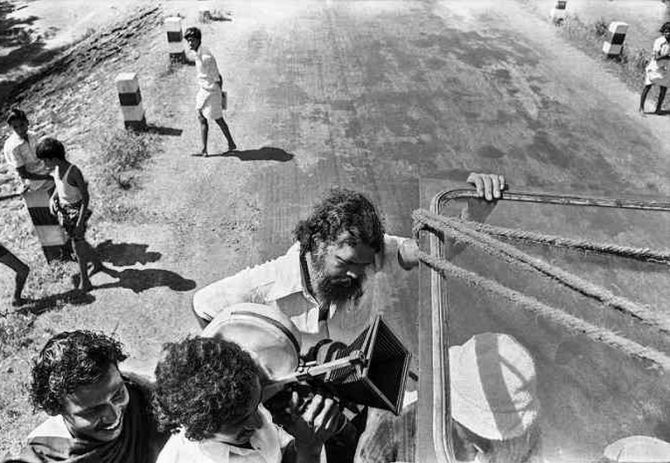
I spoke to The Film Foundation's World Cinema Project and we came to an agreement to partner on the restorations of Aravindan's Kummatty and Thamp.
I got the permission from K Ravindranathan Nair, the producer of five Aravindan films for the restoration.
We put out a call through the International Federation of Film Archives to member archives around the world searching for best available source elements.
As I had feared, none of the original camera negatives of Aravindan's films survived.
Then I remembered that in a conversation P K Nair, the late director of the National Film Archive of India, had mentioned to me that their collection included prints of Kummatty.
On inspection, we found that the prints were not in great condition, but we shipped them to the L'Immagine Ritrovata lab in Bologna.
The restoration itself was very challenging. The lab found that both the prints had a lot of wear and tear.
One of the prints presented a consistent vertical green line on the right-hand side of the image, which required painstaking frame-by-frame manual work to be removed.
We were fortunate that Ramu Aravindan had photographs of the shooting location which served as a crucial reference for the colourist, and cinematographer, and film-maker Shaji N Karun, who had shot so many of Aravindan's films, made himself available.
The restored film was screened at the Il Cinema Ritrovato festival in Bologna on July 25, 2021.
I could not be there, but friends who watched it, were blown away by the imagery, colour and sheer poetry of the film on the big screen.
The restoration of Thamp was very challenging too.
We were aware that the National Film Archive of India had film elements in its collection, but we needed to ascertain exactly what they had.
Having worked with both Prasad Studio in Chennai and L'Immagine Ritrovata in the past, we decided that we would split the restoration process between the two labs.
I knew if we could restore Thamp to world-class standards, it would get us to Cannes.
Our restoration was selected for a world premiere in the Cannes Classic selection in May 2022.
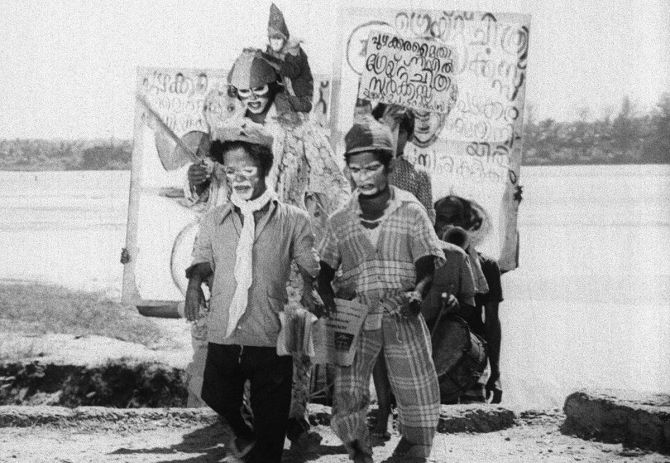
Can you talk about the restoration workshop that you organise?
When we established the Film Heritage Foundation in 2014, I realised that it was not enough just to collect every bit of film heritage we could lay our hands on, but we would need an army of trained archivists to take on the monumental task of preserving our film heritage.
To address this issue, we tied up with the International Federation of Film Archives and Fondazione Cineteca di Bologna for our first film preservation and restoration workshop in Mumbai in 2015.
That's when we realised that we need to do much more especially as India has so many filmmaking centres.
So we adopted a travelling school approach and organised these workshops in different parts of the country.
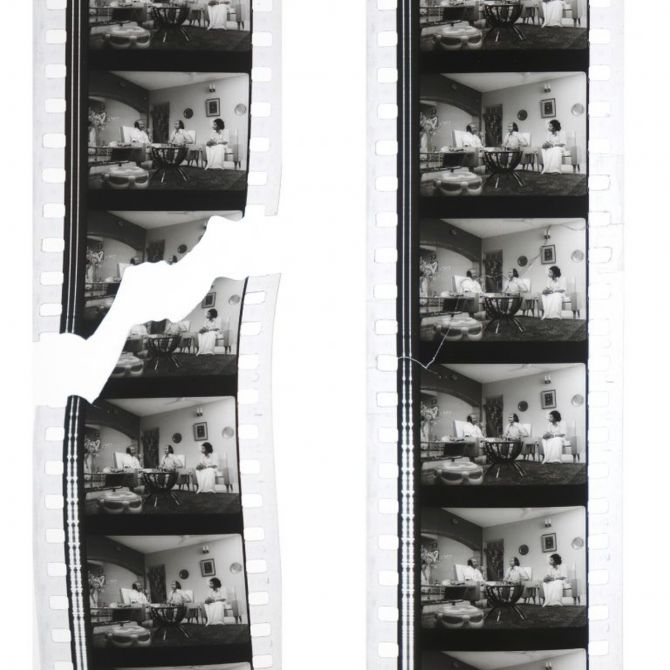
In 2016, we took the workshop to the National Film Archive of India in Pune, followed by Chennai (2017), Kolkata (2018) and Hyderabad (2019).
Our workshops cover the entire gamut of film preservation from archive management to preservation and restoration of celluloid and digital film, cataloguing, documentation and data management, photograph and object conservation.
The faculty comprises experts from premier archives and institutions around the world.
The workshops have been open to India and it's neighbouring countries - Sri Lanka, Nepal, Bangladesh, Bhutan, Myanmar and Afghanistan.
Over six years we have introduced over 300 individuals to the best practices of film preservation and restoration.
The most amazing endorsement of our work happened in 2019 when Mariam Ghani (former Afghanistan president Ashraf Ghani's daughter and a film-maker herself) reached out to us to ask if tarchivists from the Presidential Palace Film Archive and the Afghan Film Institute could attend our workshop in Hyderabad.
Many of these archivists had rescued their films from destruction during the Taliban regime.
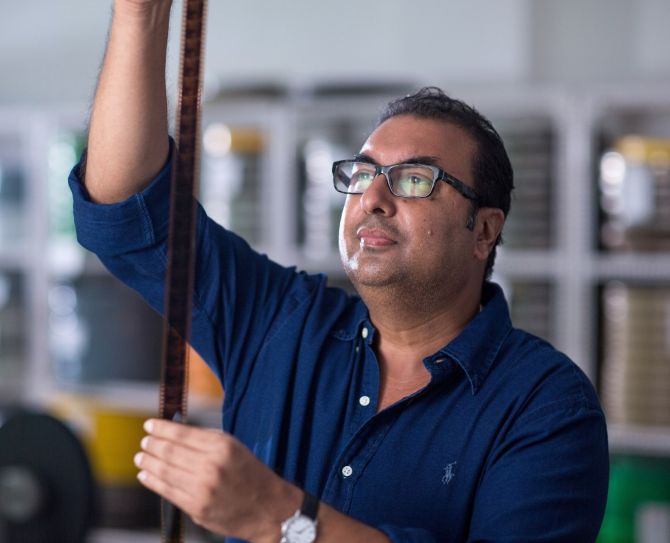
You were in Nantes for the 3 Continents festival. I see you showed 14 films. Tell me about the experience sharing the films with the audience.
The Film Heritage Foundation was invited to curate a selection of 14 Indian classic films showcasing the diversity of our rich film heritage at the 44th edition of the Festival des 3 Continents in Nantes this year.
Also, over the years I have noticed an over-riding sentiment across festivals and cultural institutions that has created a canon of great Indian cinema being synonymous with Satyajit Ray.
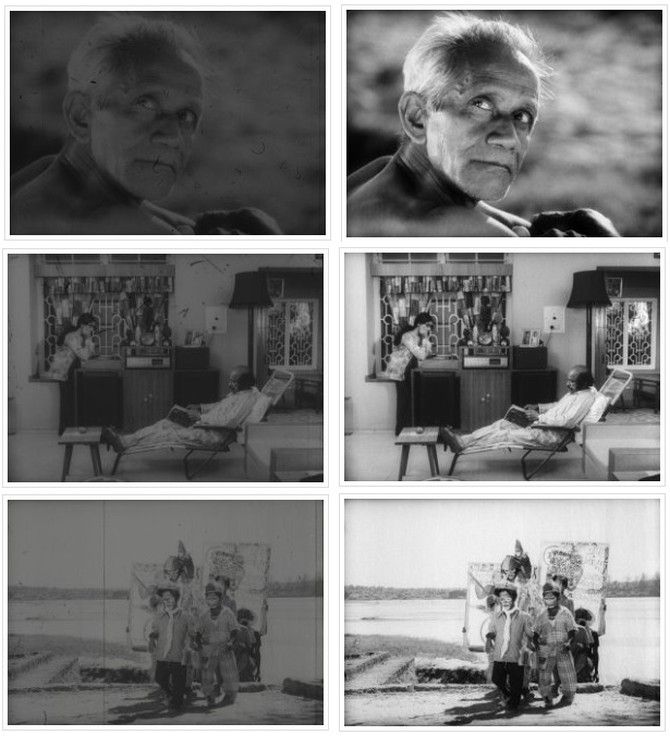
While there is no doubt about the greatness of Ray as a film-maker, this is a very limited view of Indian cinema.
The curation of these 14 films presented an excellent opportunity to demonstrate that there is a whole world beyond Ray in Indian cinema.
The films selected include Kummatty and Thamp, K Balachander's Thanneer Thanneer, Sanjiv Shah's Hun Hunshi Hunshilal, Mani Kaul's Ashad Ka Ek Din, Kamal Swaroop's Om-Dar-B-Dar and John Abraham's Donkey in a Brahmin Village.
We also showed Girish Karnad's Utsav, Sai Paranjpye's Disha and Saeed Akhtar Mirza's Arvind Desai Ki Ajeeb Dastan.
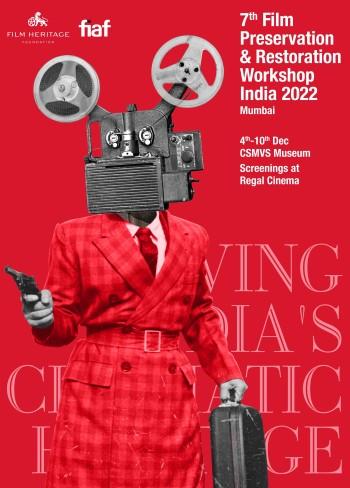
We were able to include the restored version of Ritwik Ghatak's Titash Ekti Nadir Naam as well as an older restoration of Khandhar to mark Mrinal Sen's birth centenary year. And also Kunal Kapoor's painstaking restorations of Aparna Sen's 36 Chowringhee Lane and Utsav
The Festival des 3 Continents is a true cinephile's festival.
It was wonderful to see posters of the festival that had an image from Thamp at every street corner of Nantes.
I was amazed to see packed houses for our films under the title 'Indian Autumn' with people queuing up in the cold in advance to watch the films.
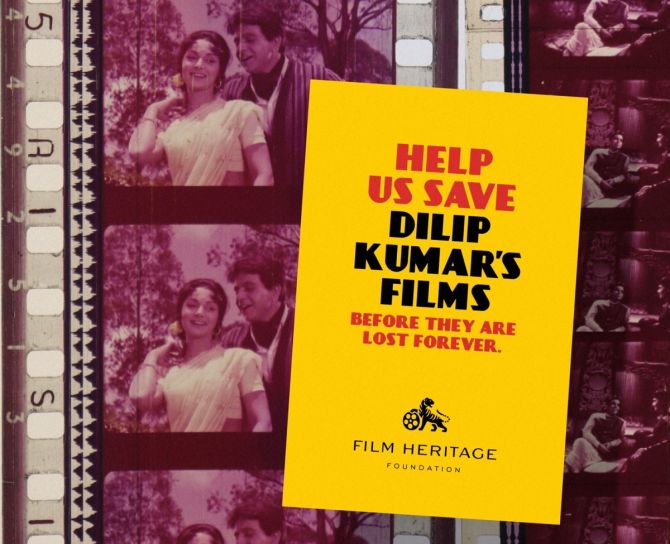
Feature Presentation: Rajesh Alva/Rediff.com










